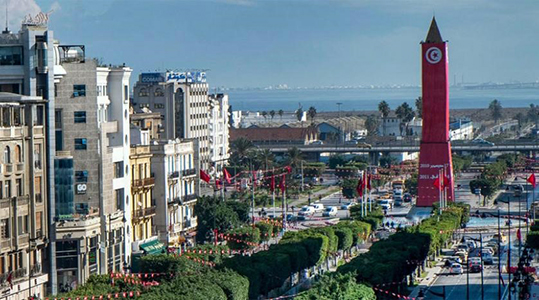
The National Institute of Statistics in Tunisia revealed that the trade deficit narrowed in 2020 compared to the previous year, amounting to 6.6 billion Tunisian dinars (2.4 billion dollars). The deficit fell to the level of 12.75 billion dinars (4.7 billion dollars), after it was at the level of 19.43 billion dinars (7.2 billion dollars) in 2019.
The Institute attributed this contraction to a noticeable decline in imports by 18.7 percent in 2020 compared to the previous year.
The worsening trade deficit was one of the main dilemmas for all governments in past years, but its decline this year contributed to a remarkable increase in foreign exchange reserves in the country.
At the same time, statistics from the Central Bank of Tunisia showed that the country's holdings of foreign currency amounted to the equivalent of 162 days of imports, which is the highest level since 2011.
The Tunisian government presidency had revealed its commitment with the International Monetary Fund to develop a program of economic reforms in line with the government's vision of cooperation with this international financial structure, and in line with the financial resources available to it.
Prime Minister Hichem Mechichi promised, in the first meeting with an IMF expert mission, based on remote communication technology, that Tunisia is ready to implement a number of structural reforms, stressing that the relationship between the two parties is "a strategic relationship for Tunisia and its government."
The Tunisian government is looking for a feasible way to finance the current year’s budget, after the end of the agreement signed between Tunisia and the International Monetary Fund, which extended from 2016 to 2020. This agreement enabled the Tunisian government to obtain an amount of $2.9 billion that it relied on to finance the budget and run state affairs. In case of the lack of external loans, the gap will be wide between the available resources and funding requests.
Source (Asharq Al-Awsat Newspaper, Edited)
